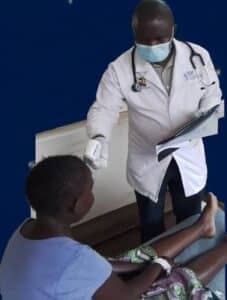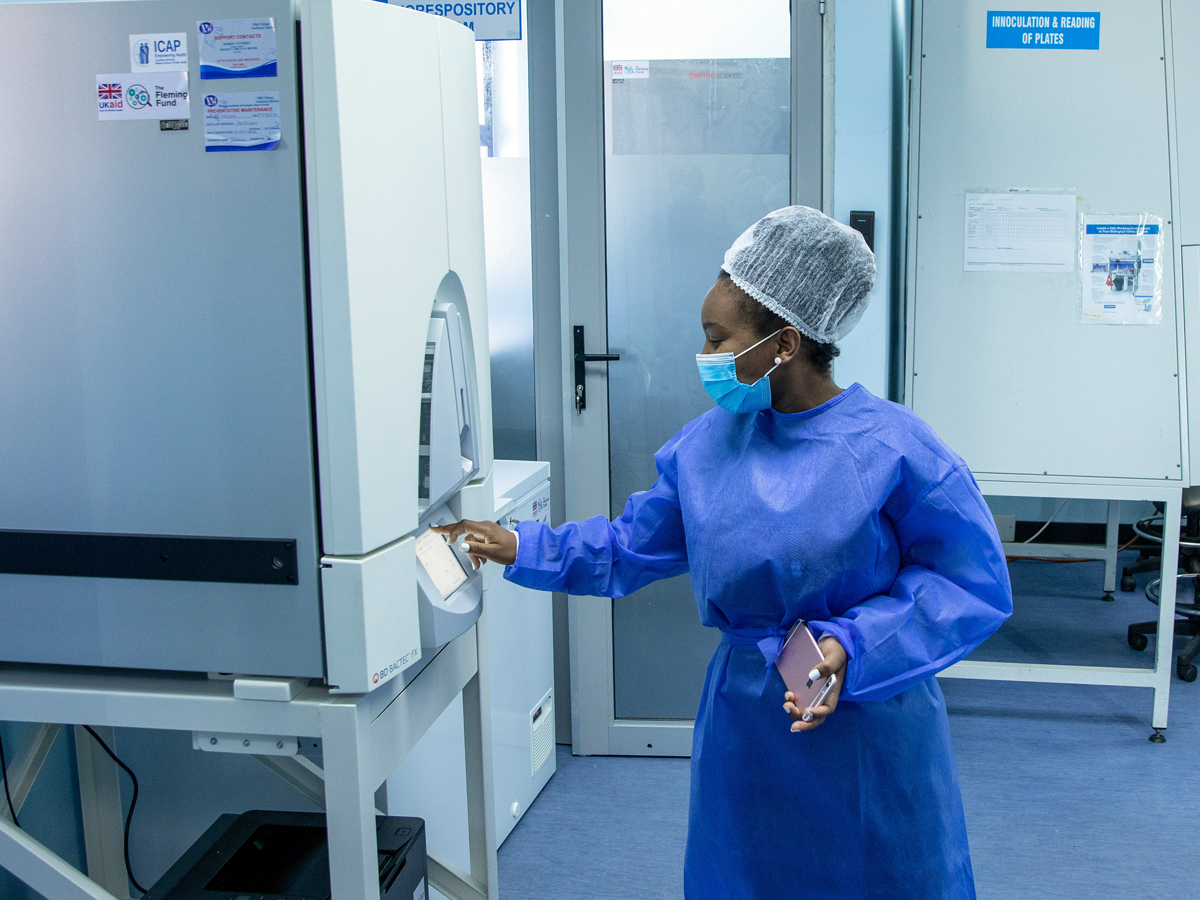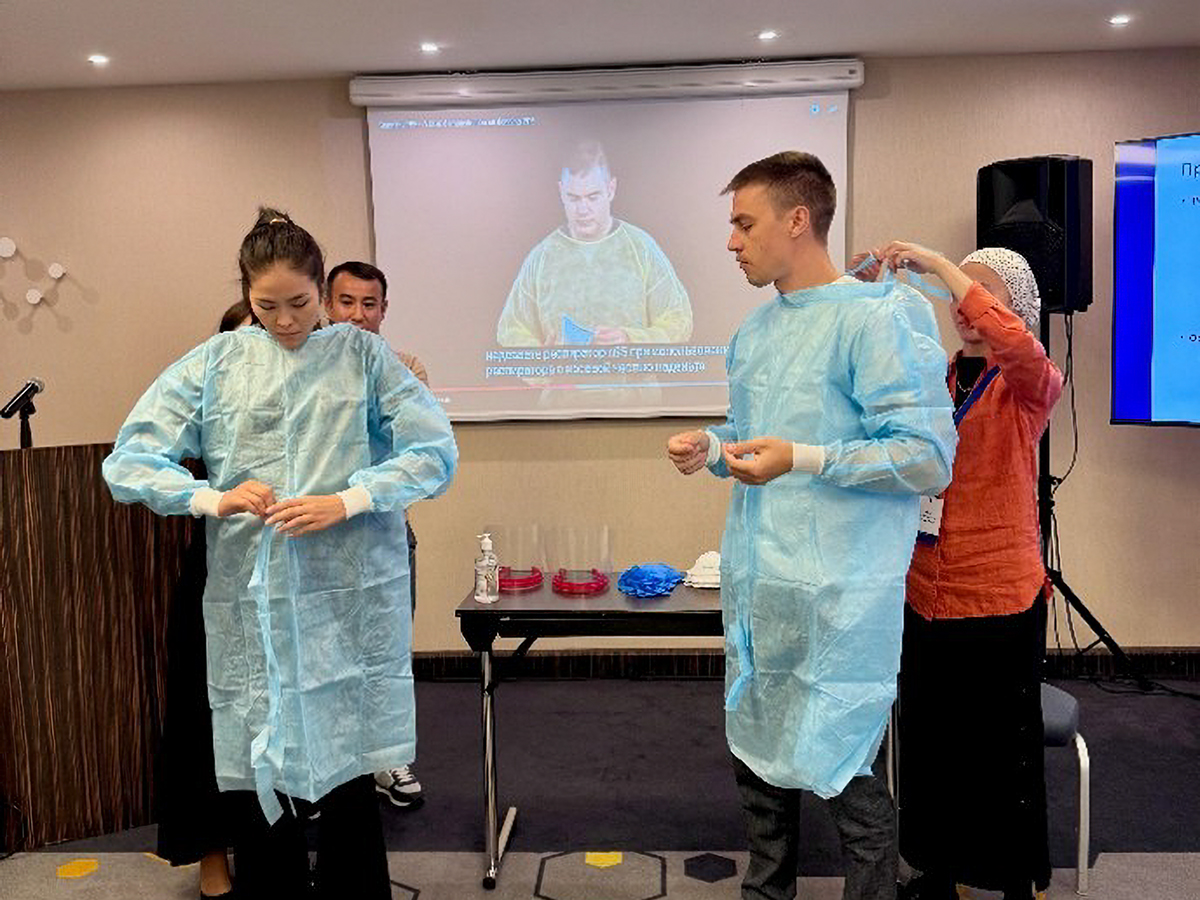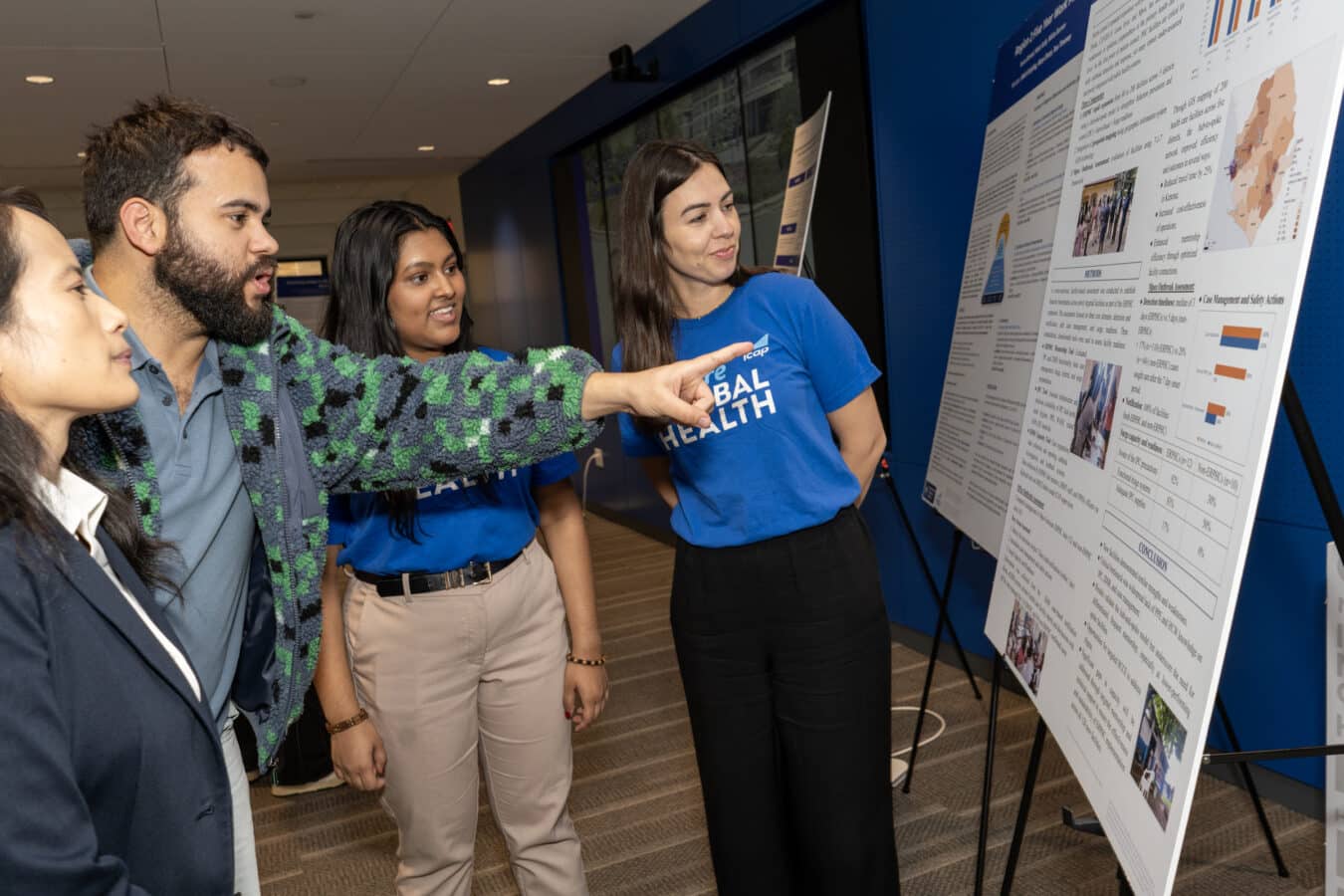Between 2022 and 2024, over 118,000 confirmed cases of mpox were reported globally. Kenya reported its first cases in July 2024 and has since reported 50 confirmed cases, with the highest concentrations in the counties of Nakuru, Mombasa, and Busia.
Mpox, formerly known as monkeypox, is a highly contagious virus that causes painful rashes, open lesions, and can be fatal in up to 10 percent of cases. There are two known clades, or types, of the virus – clade I and clade II, which include subtypes. The most frequently reported clade in Kenya is clade Ib, which tends to be more severe than clade II.
With support from the U.S. Centers for Disease Control and Prevention (CDC) and in collaboration with the Ministry of Health, ICAP in Kenya is equipping health workers with skills to better detect and respond to the mpox threat.
In Busia, a small town in western Kenya near the Ugandan border, a woman sought care at a public health facility, which also serves as one of ICAP’s Integrated Facility-Based Surveillance (IFBS) sites. Experiencing fever and pain, she was admitted to the general medical ward after being diagnosed and treated for severe chickenpox. However, within a day of admission, her condition worsened as the painful rashes turned into large blisters and eventually into open lesions. An ICAP-trained surveillance officer, John Okore, noticed symptoms that matched the clinical case definition of mpox.
Acting swiftly, John alerted health care workers at the health facility about his suspicions and flagged the case for specialized clinical review. The hospital took action to transfer the patient to an isolation bed, where samples were collected and laboratory tests confirmed mpox. Due to Okore’s vigilance and the rapid response of the health care team, the patient was isolated and treated for the life-threatening condition – preventing further spread within the health facility and among the greater community.

John Okore, an ICAP-supported surveillance officer, screens a patient for mpox.
“Early detection of mpox is key to preventing its spread,” said Doris Naitore, MPH, country representative for ICAP in Kenya. “Through the IFBS program, ICAP, CDC, and the Ministry of Health are not only saving lives but also protecting global health security overall. Together, we can demonstrate that with an effective disease surveillance system, awareness, and prompt action, even the most threatening diseases can be stopped.”
Okore is among many health care workers in Busia who were trained on the latest Integrated Disease Surveillance and Response (IDSR) guidelines, which demonstrate how to identify patients with mpox at the clinic or community level and how to respond to such a diagnosis. Health care workers were also trained on the ICAP-developed application referred to as ADaM (All Disease outbreAk Module), which tracks and collects disease outbreak data for more efficient, evidence-informed decision-making at the health facility level, including for mpox outbreaks.
About ICAP
A major global health organization that has been improving public health in countries around the world for two decades, ICAP works to transform the health of populations through innovation, science, and global collaboration. Based at Columbia Mailman School of Public Health, ICAP has projects in more than 40 countries, working side-by-side with ministries of health and local governmental, non-governmental, academic, and community partners to confront some of the world’s greatest health challenges. Through evidence-informed programs, meaningful research, tailored technical assistance, effective training and education programs, and rigorous surveillance to measure and evaluate the impact of public health interventions, ICAP aims to realize a global vision of healthy people, empowered communities, and thriving societies. Online at icap.columbia.edu








